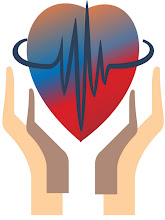Every parent has the age-old question: "Should you bribe your child to do homework?" "Should you pay your child for good grades?" And the answer is yes—and no.
Everyone responds to some form of bribery in life. Bribery is the promise of something in return for doing something. But bribery has a negative implication, whereas reward is a positive influence. Rewards may be personal (feeling good about ourselves), social (being thanked or praised by others), or material (receiving a concrete reward).
Most children are not mature enough to accept personal rewards, so they may need material rewards. Material rewards can be effective to motivate a child to improve a behavior, grade card, or practice, but should not be used as the only means for improvement. The material rewards need to be phased out when no longer needed and replaced with personal or social rewards. Rewards for children need to be frequent, consistent and appropriate.
As well, consequences should be spelled out ahead of time. Parents who set consequences with children also need to be sure they can live with the consequences. By developing consequences, parents are actually giving children a choice. If the child chooses the consequence for not following through on the expectation, a suitable consequence should be given.
Appropriate consequences do not include buying expensive toys for completing homework or receiving acceptable grades; on the other hand, grounding your child for a month for failing to live up to an expectation is not appropriate either.
Goals need to be short term and rewards small for young children. As children mature, the goals can be more long-term and the rewards or consequences should be equivalent to their maturity.
Monday, October 10, 2011
Monday, October 3, 2011
CPR and New Updates for 2011
ILCOR http://www.ilcor.org/en/home/ meets evry five years with other health professionals to review science advances since last meeting. With these sessions all the major organizations invlolved in Cardiovascular health and safety convene. This year there were several changes in all curriculum affecting emergency response to cardiac events. These updates can be found on the American Heart Associtation website http://www.heart.org/HEARTORG/ . Also there is now science proving chest comporessions alone can help keep a person alive until advanced rescuers arrive. This is good because of possibility of communicable diseases if you perform mouth to mouth without a barrier. Watch this entertaining video for more information.
Subscribe to:
Comments (Atom)



